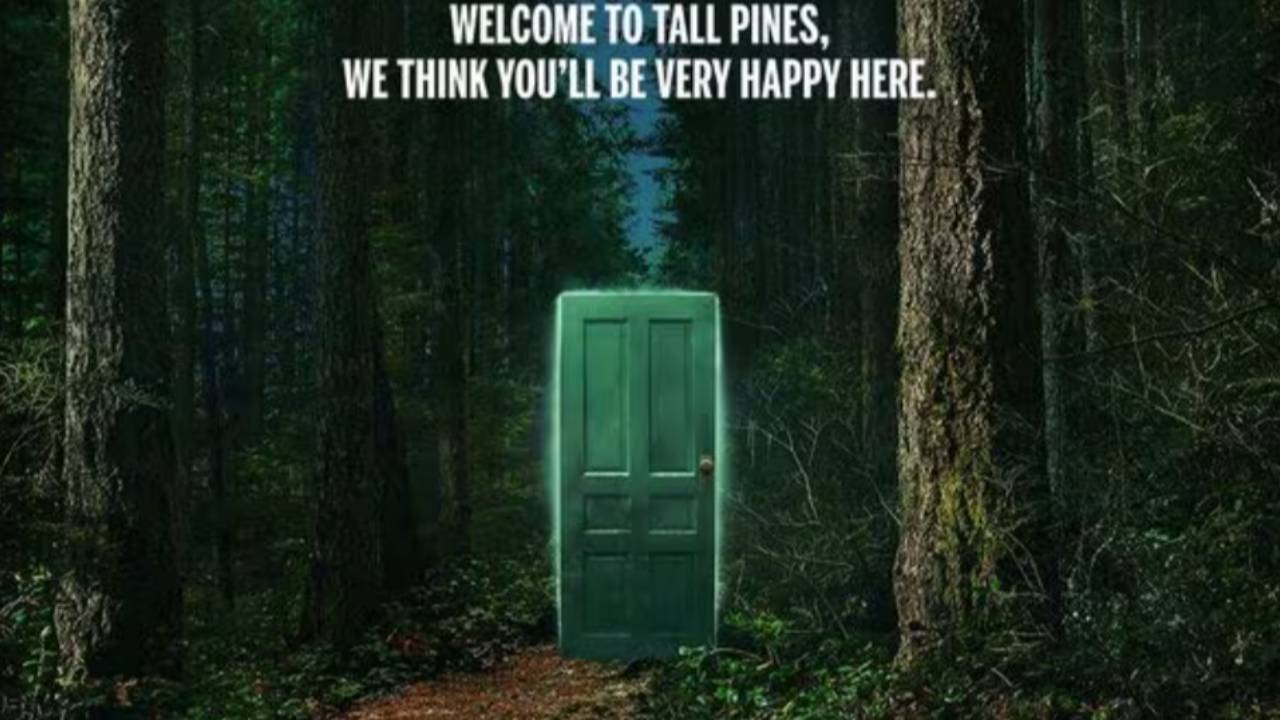If the pain isn't yours, why are you still carrying it?
Oct 03, 2025
I’ve just finished watching Wayward on Netflix. The show centres on Tall Pines Academy, where headmistress Evelyn Wade uses questionable (massive understatement here) therapeutic techniques, claiming to "solve the problem of adolescence”. Between Toni Collette's unsettlingly brilliant performance and the show's exploration of a troubled teen academy, buried in all the manipulation and control, she kept circling back to one concept: intergenerational pain. Her methods were horrifying, even though her recognition that this pain exists and gets passed down was spot on.
Her solution was to erase it. Sever the connections, the attachment. Make the kids forget their parents, forget their history, forget everything that came before.
Intergenerational pain is real - your body knows it, even when your mind doesn't have the story. But erasing isn't healing.
The weight that came before you
There's a specific kind of emotional weight that doesn't quite add up.
You sit in therapy, or journal, or talk with friends, trying to trace back the thread - "Why do I feel THIS much grief? THIS much anxiety? THIS much rage?" And when you line up your life experiences against the intensity of what you're carrying, the math doesn't work.
Nothing happened that was "bad enough" to justify this heaviness.
Sometimes, a client will sit across from me in clinic and say "I had a normal childhood. My parents did their best. Nobody died. Nobody left. So why do I feel like I'm carrying the weight of something catastrophic?"
And then we start exploring. Not their story, but the stories that came before them.
The grandmother who lost everything in the war but "never talked about it." The grandfather who worked himself into an early grave, silent and stoic. The mother who learned to swallow her anger so completely, it looked like she never felt any. The father whose own father's rage taught him to become invisible or detached.
Your body remembers what your family couldn't process. It holds what they couldn't release.
How pain travels through generations
This is not some abstract psychological concept. Your nervous system has been learning from the emotional environment it developed in. It had to, it’s a matter of survival.
Before you had language, before you had memory, your body was reading the room. It was picking up on your mother's held breath, your father's tension, the unspoken grief that filled the spaces between words.
When the adults around you couldn't complete their own emotional responses - couldn't safely feel their rage all the way through, couldn't grieve what they lost, couldn't express the terror they survived - that incomplete cycle didn't just disappear. It got stored and repeated multiple times, unchallenged and unfinished. And your little nervous system, still forming, still learning how to be in the world, absorbed it.
You inherited a response that was never about your life. Your body became the keeper of someone else's unfinished story.
This is why you can have that "good enough" childhood and still carry what feels like profound pain. This is why insight alone - understanding your family patterns, recognising the dynamics – may not be enough to shift what you're holding.
That kind of pain is not in your mind. It's in your body. And your body doesn't care about the story. It only knows what it's holding.
Why understanding it isn't enough
Let me be clear: there's value in understanding where your patterns come from. In recognising that your anxiety mirrors your mother's, or that your people-pleasing looks exactly like your father's hypervigilance.
But knowledge and the ability to release pain are two different things.
You can know, intellectually, that you're carrying your grandmother's unexpressed grief. You can trace the pattern through three generations. You can see it clearly, name it accurately, understand it completely.
And still wake up every morning with that same heaviness in your chest.
It is not your fault, you inherited this pain without choice. But now, as an adult, you're choosing - consciously or unconsciously - whether to keep carrying it.
The pain arrived in your body without your permission, before you had any say in the matter. Your nervous system did what it needed to do to adapt, to survive, to make sense of the emotional world it was born into.
But every day you continue carrying this weight is a day you're making a choice - even if it doesn't feel like one.
And if you can choose to hold it, you can also choose to release it.
What Release actually means
Let me tell you what release is NOT:
It's not what Evelyn Wade wanted in Wayward - severing connections, erasing history, pretending the pain never existed.
It's not betraying your family by "letting go" of what they went through.
It's not pretending that what happened to them didn't matter.
Release is allowing what was held to finally complete and move through.
It's your body finishing the response that got interrupted generations ago. It's the grief that was never cried, finally having permission to flow. It's the rage that was swallowed for decades, finally able to move through and out.
Your body has an incredible capacity to release what it was never meant to keep carrying. But it needs the right conditions. It needs safety. It needs permission. It needs someone who knows how to hold space for what wants to emerge.
This is the work I do. Not helping you understand your patterns better (though that happens and it’s certainly helpful). Not teaching you how to manage the weight more effectively (that's not the end goal). But by helping your body release what it's been holding so you can finally feel lighter. So you can finally be YOU, not the repository for everyone else's unprocessed pain.
The choice you're making
Here's the truth that might be hard to hear:
You inherited something you never asked for. A weight that wasn't yours, a pain that predates your own story.
But you don't have to keep choosing it.
Every day you wake up carrying this weight is a day you're actively deciding to hold onto something that was never meant to be yours. Not because you're weak. Not because you're doing anything wrong. But because no one ever showed you that you could put it down.
The difference between inheriting pain and choosing to hold it? That's where transformation lives.
You didn't choose to inherit it. But you can choose to release it.
Ready to move from understanding to embodied healing?
The Somatic Release Intensive is a 1-month body-based programme for people who've done the intellectual work and are ready to work at the nervous system level. Learn more about how we work with what your body has been holding. Drop me a line to have a chat or to schedule Session 1:
https://www.mindandsoul.uk/work_with_me
Or if you want to understand more about what somatic release work looks like, start here:
Behind the Scenes Therapy Insights
Get insights that go deeper than social media posts, with exclusive behind-the-scenes observations from my practice:
We hate SPAM. We will never sell your information, for any reason.

